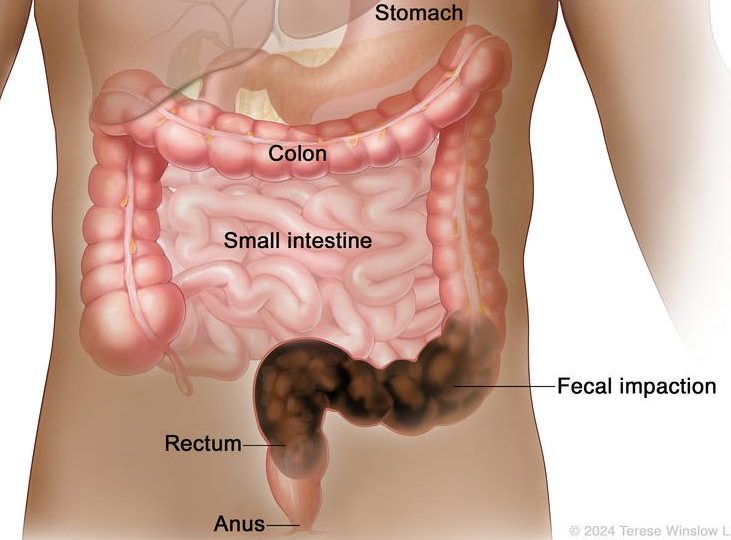
You can’t force the body but you can support its rhythm
Constipation doesn’t always mean complete absence. Sometimes it means going daily but feeling unfinished. You leave the bathroom feeling like something stayed behind. That lingering fullness becomes normal without you realizing it. The days stretch longer. The body quiets down. Then the discomfort becomes background noise.
You start to guess what caused it. Was it the bread? The sleep? The skipped walk? But chronic constipation isn’t built overnight. It’s shaped by habits that were once temporary. And now, your gut doesn’t know when to start or stop.
Natural relief isn’t about cleansing or flushing. It’s about rhythm. Predictability. Warmth. Time. The gut doesn’t respond to force—it listens to gentle repetition.
Water matters more than you think
Dehydration isn’t always thirst. Sometimes it’s tightness in your lower belly. Hard stools that take time to pass. Straining without urgency. That’s your colon pulling water from stool to send it elsewhere.
You need more than a few sips. Try starting the morning with warm water. Try room temperature over icy drinks. Drink slowly—not just when you remember.
If your lips are dry your colon probably is too. Without fluid stool stiffens. The colon slows. Bloating builds. You don’t need juice or fizzy drinks. Just water and patience.
Fiber needs support not just presence
Everyone says eat more fiber. But no one talks about how to do it gently. Too much too fast leads to cramping. Bloating. That stuck feeling worsens.
Start with cooked vegetables. Soft fruits. Apples with skin. Pears. Kiwi. Oats. Add chia seeds soaked in water. Let the gut adjust for a few days.
Fiber is powerful but slow. It doesn’t rush things. It builds bulk so your colon has something to move. But it only works with water.
And you have to listen. If fiber feels heavy slow down. It’s not a race.
Movement tells your gut it’s time to engage
Stillness tells the gut to rest. Movement tells it to wake. Walking after breakfast helps the colon contract. Stretching opens the abdomen. Lying on your back and pulling one knee in at a time can ease tension.
The body responds to rhythm. When you move gently digestion follows. You don’t need a workout. You need a signal.
Even ten minutes helps. Especially in the morning. Especially before screens and noise.
Morning routines matter more than you realize
Your body loves patterns. It notices when you eat. When you sleep. When you sit still or move. And it rewards consistency.
Try to sit on the toilet around the same time each day. Don’t rush. Don’t expect results. Just show up.
The body will learn. It just needs time. Even showing up without a result is progress.
You’re not just training your gut. You’re retraining your whole system.
Coffee helps for some but moderation is key
Caffeine can prompt movement. But it also dehydrates. Some people go right after their first sip. Others feel jittery and tight.
Try it with food not on an empty stomach. One cup may help. More may cause rebound constipation.
The body needs support not stimulation. Coffee is a tool. Not a cure.
The gut holds tension like a clenched fist
Stress closes things down. It pulls blood away from the digestive system. It tightens pelvic muscles. It delays signals.
If you hold in your stool often the colon learns to wait. It becomes less responsive. The urge fades.
Find calm before you try to go. Breathe deeply. Let your shoulders drop. Sit quietly. The more relaxed you are the easier it is to release.
This isn’t laziness. It’s biology.
Natural support can help but should be used slowly
Magnesium pulls water into the bowel. Triphala tones the colon. Psyllium bulks stool. But all of them need to be introduced gradually.
Start small. Observe your body. Track bloating and fullness. And don’t forget hydration.
Even the most natural aids need rhythm to work.
Dietary fat plays a quiet but vital role
Fat triggers bile. Bile supports movement. Low fat diets often make constipation worse.
Add olive oil. Avocado. Flaxseed oil. Coconut milk. Small amounts with each meal help.
Fat also satisfies. It calms the nervous system. The more satisfied you feel the less your gut holds on.
Emotions affect digestion more than most realize
You eat the same meal one day and feel fine. Another day it bloats. That’s your nervous system showing up in your stomach.
Track how you feel emotionally. Journaling helps. Slower meals help. Silence during meals helps.
If your body doesn’t feel safe it won’t release.
The gut doesn’t lie. It just waits.
Sleep changes everything
Lack of sleep increases cortisol. That slows digestion. It tenses the body. It shuts down signals.
Even one night of poor rest can change your gut’s behavior. The longer the pattern continues the more resistant your system becomes.
Rest deeply. Keep screens out of the bedroom. Wake and sleep at the same time. The gut notices that too.
You’re not broken—you’re out of sync
Constipation feels lonely. Frustrating. Private. But it’s not weakness. It’s a message. A request for pause.
You don’t need to punish your gut. You need to hear it. Start small. Gentle. Support the rhythm your body wants but forgot how to follow.
Relief doesn’t come from force. It comes from remembering what the body once knew.
